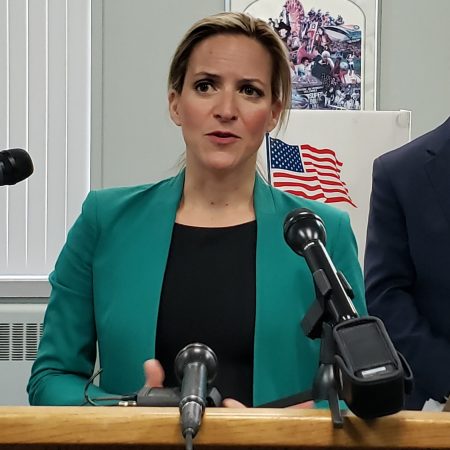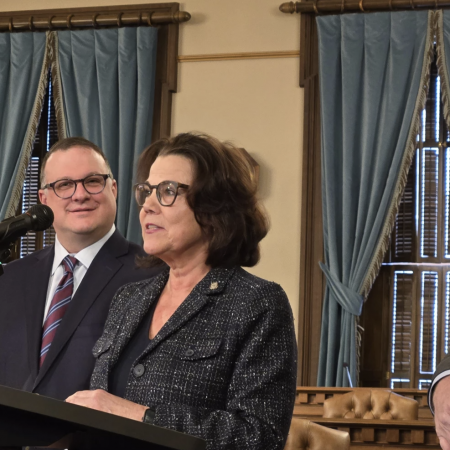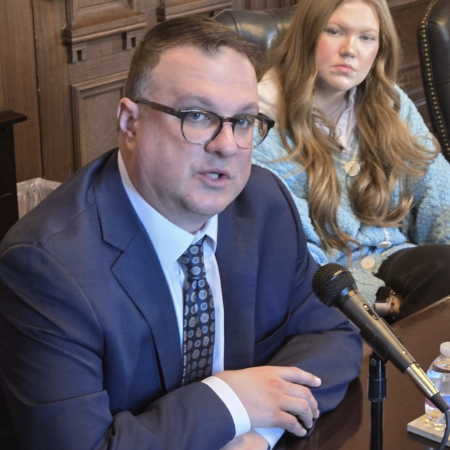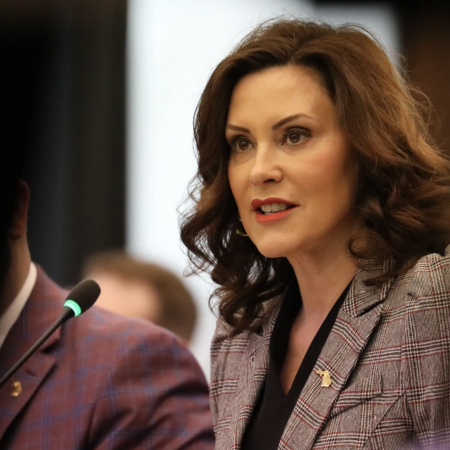Michigan House passes minimum wage bill
A bill to change Michigan’s minimum wage law ahead of it taking effect passed the state Legislature Wednesday. The law is scheduled to take effect Friday.
If left unchanged, the law would gradually raise the minimum wage for both tipped and non-tipped workers until both are making the same amount by 2030.
The bill would speed up raises for non-tipped workers so they get to $15 an hour by 2027 instead of just coming close in 2028 with a planned $14.97 minimum wage.
But the bill would also slow down gradual raises for people who get tips. It would cap that minimum wage for tipped workers, like bartenders and servers, at half of what everyone else makes.
Employers would still be responsible for covering the gap if tips don’t make up the difference.
Rep. Bill G. Schuette (R-Midland) said that’s a necessary compromise to protect businesses.
“It’s not perfect, but it is an action, an immediate action that’s going to help preserve our tip credit and the tip wage system. And I think that’s vital in here to the restaurant industry,” Schuette said after the House vote Wednesday.
The bill is now cleared to head to the governor to receive her signature. But, for it to go into place by Friday’s deadline, it would need the Senate to vote for it to take effect immediately. That would require a supermajority in the Democratic-controlled chamber.
Republicans and hospitality industry groups say restaurants and bars could go out of business if they become responsible for covering a server’s entire base pay. Some Democrats in both the House and Senate also voted in favor of the bill.
But other Democrats say lawmakers shouldn’t touch the petition-initiated minimum WAGE law before it takes effect Friday.
That’s especially after lawmakers, in 2018, adopted the initiative before it could go to the ballot and watered it down, in a move known as “adopt and amend.” It led to a court challenge that eventually set the Feb. 21 deadline to begin with.
One Fair Wage, the group behind the petition, sent out a press release Tuesday that argued passing the bill would be illegal under the court ruling. It included an open letter from University of Michigan law professor Samuel Bagenstos.
“The Legislature’s original adopt-and-amend constitutional violation has meant that the Wage Act and Earned Sick Leave Act have been in suspended animation for years and have still not gone into effect. For the Legislature to amend these initiatives now, before letting them take effect, would be to once again ‘sidestep the people’s reserved power,’ Bagenstos wrote, referencing another law also planned to take effect Friday.
That law guarantees all non-federal workers in Michigan the right to at least some paid time off. How much that would be depends on how many hours they work and the size of their employer.
Business groups say wording in the law would create too much new paperwork for companies and not include enough accountability to make sure people don’t skip work without any warning.
House Speaker Matt Hall (R-Richland Twp) said any compromise with Democrats needs to include exceptions for small businesses and seasonal workers, limit who can sue an employer, and include more accountability.
Hall also wants it to be more clear that businesses can offer the required sick time up front and not have to worry about doing the math to see how much sick time someone earns based on hours worked.
“I think we’re laying out things that we need to protect in order to do a deal here,” Hall told reporters during a press conference Wednesday.
Like with the minimum wage bill, however, some Democrats are promising opposition, saying people should be able to stay home if they’re sick, regardless of how many coworkers they have.
When asked what he’s hoping to get out of any compromise legislation, House Minority Leader Ranjeev Puri (D-Canton) said he’s just trying to watch out for Michigan workers.
“There’s been a very false choice presented where we have to pick between business and workers. And I don’t think that that is the reality of the situation here,” Puri told reporters.
The main sick leave policy bill is currently before the state Senate, which is expected to take up a vote on the measure Thursday in what could end up being a long session day.
The House would likely still need to agree to whatever compromise changes the Senate could introduce before the sick leave bill goes to the governor as well.
Both the sick leave and minimum wage bills are tie-barred together, meaning neither can take effect unless both become law.
Trusted, accurate, up-to-date.
WDET strives to make our journalism accessible to everyone. As a public media institution, we maintain our journalistic integrity through independent support from readers like you. If you value WDET as your source of news, music and conversation, please make a gift today. Donate today »The post Michigan House passes minimum wage bill appeared first on WDET 101.9 FM.


















